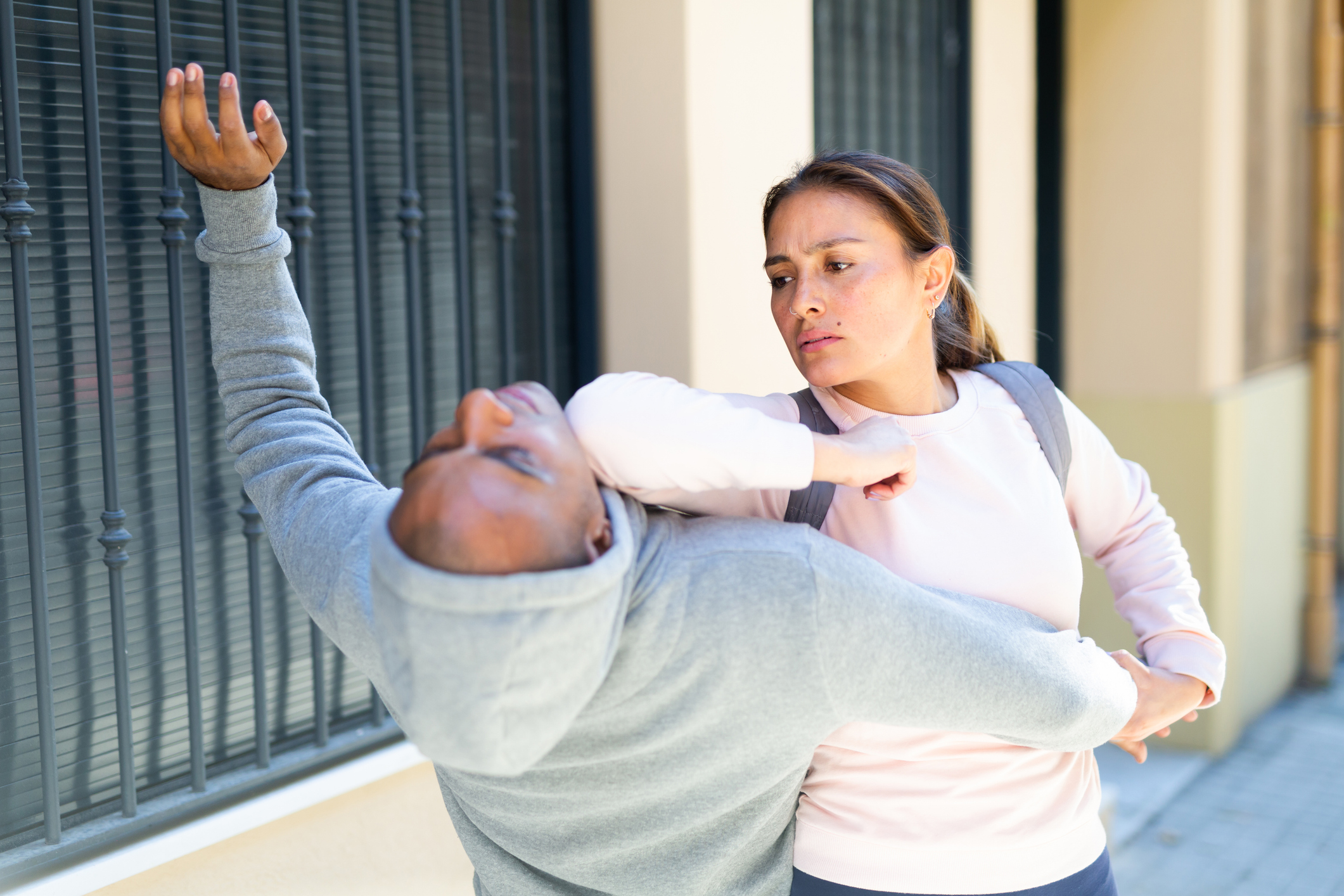What is Self-Defense?
Self-defense is an affirmative defense, meaning that the act is acknowledged but believed to be justified. Self-defense is necessary when force is required to protect oneself, others, or one’s residence from imminent harm.
What are the Elements of a Self-Defense Claim?
Ohio law recognizes your right to defend yourself or another against imminent harm, but that claim has limitations. For self-defense to apply during an assault case, the following conditions must be met:
- You had a reasonable belief of immediate danger of bodily harm: This stipulation assumes that if an average person were placed in the same situation, they would also believe they were in imminent danger and that defense was necessary.
- Proportional force was used: The force used during self-defense should be proportional to the threat. For example, deadly force is only justifiable if there is a reasonable belief of a danger of death or severe harm.
- The use of force was necessary: Force must be necessary to prevent harm. If there is an alternative to force, such as fleeing or seeking help from law enforcement, then the use of force may be considered unnecessary.
- You were not the aggressor: A person who initiates conflict cannot claim self-defense unless they retreated from the situation and were pursued.
What is the Presumption of Self-Defense?
Ohio law grants a presumption of self-defense if you are defending yourself from an intruder in your own home. If the intruder enters your residence or vehicle unlawfully and without permission to do so, then the court will assume that you acted in self-defense, regardless of the circumstances
The presumption of self-defense does not apply in either of the following situations:
- The intruder had a right to be in your home or vehicle or was invited to be there.
- You are in a home or vehicle that you are not legally allowed to enter, such as through a protective order.
What is the Burden of Proof for Self-Defense Cases?
A burden of proof is placed on whichever side is responsible for proving a particular set of facts. For criminal assault cases, the prosecution will attempt to demonstrate guilt “beyond a reasonable doubt.” This is typically accomplished using evidence and testimony that you knowingly, maliciously, or recklessly caused or attempted to cause physical harm to another person.
Ohio assault cases involving self-defense require the prosecution to disprove self-defense beyond a reasonable doubt, which differs from other states where the defendant has the burden to prove self-defense.
The prosecution must disprove self-defense beyond a reasonable doubt for any violent crime, including:
- Aggravated murder
- Murder
- Voluntary manslaughter
- Felony assault
- Aggravated assault
- Assault
Other factors that may contribute to the viability of a self-defense claim include:
- The history between both parties
- Threats made prior to the encounter
- The physical capabilities of the involved parties
- The presence or lack of weapons
- Witness testimonies and physical evidence
What Other Laws Support Self-Defense?
The State of Ohio is a “stand your ground” state, meaning you do not have to retreat before defending yourself if you are in a place where you have a right to be. If you have a reasonable belief that your life or another’s life or bodily integrity is in jeopardy, you have the right to stand your ground by defending yourself. Ohio’s stand-your-ground law only applies if you are in your vehicle.
“Stand your ground” works in conjunction with the lack of a duty to retreat law. A duty to retreat law indicates that the first response to violence should be to back away or flee from the threat. Ohio has no duty to retreat, which means that you are not required to back down if confronted with aggression. The “duty to retreat law” was replaced in 2021 when “stand your ground” was enacted.
The Castle Doctrine also expresses your right to defend your home, vehicle, or occupied vehicle from someone attempting to enter your property unlawfully. This includes the right to protect your property with force or deadly force.
How Can You Successfully Claim Self-Defense?
The events and circumstances surrounding the incident must be fully conveyed to the police, the prosecutor, and your attorney. An attorney at Watson Kuhlman, LLC, will be able to help you gather the evidence you need to build a solid case in your defense.
In addition to hiring a qualified attorney, the following evidence may be beneficial for your case:
- Evidence of good character and a clean criminal record
- Evidence of the other party’s aggressive or threatening behavior that caused imminent fear
- You attempted to de-escalate the situation before resorting to the use of force
- You used the appropriate and proportional force that was needed for the situation
What Should You Do if You Are Forced to Defend Yourself?
If you have used force to defend yourself, you must respond appropriately to protect yourself. The following steps should be considered:
- Ensure your safety: After a confrontation, ensure that you and others around you are safe. If you are in danger, try to go to a safe place that is out of harm’s way.
- Call the police: Call law enforcement as soon as possible to give your account of the incident. Your call will create an official record and may support a self-defense claim. Be sure to alert police if you have a weapon so that they are aware you are armed and ask what should be done with the weapon so you are not viewed as a threat upon arrival.
- Get witness information: Get the names and phone numbers of any witnesses to the event. They may be able to offer crucial third-party testimony to support your claim.
- Consult an attorney: An attorney who works in self-defense cases will be able to guide you on the best course of action for your situation.
Do You Need an Attorney?
If you have been charged with assault while defending yourself, your home, or others, you have legal rights you may not be aware of. Call Watson Kuhlman, LLC, today at 216-208-7858 or complete a contact form to schedule your free consultation.


 Email Us Now
Email Us Now







